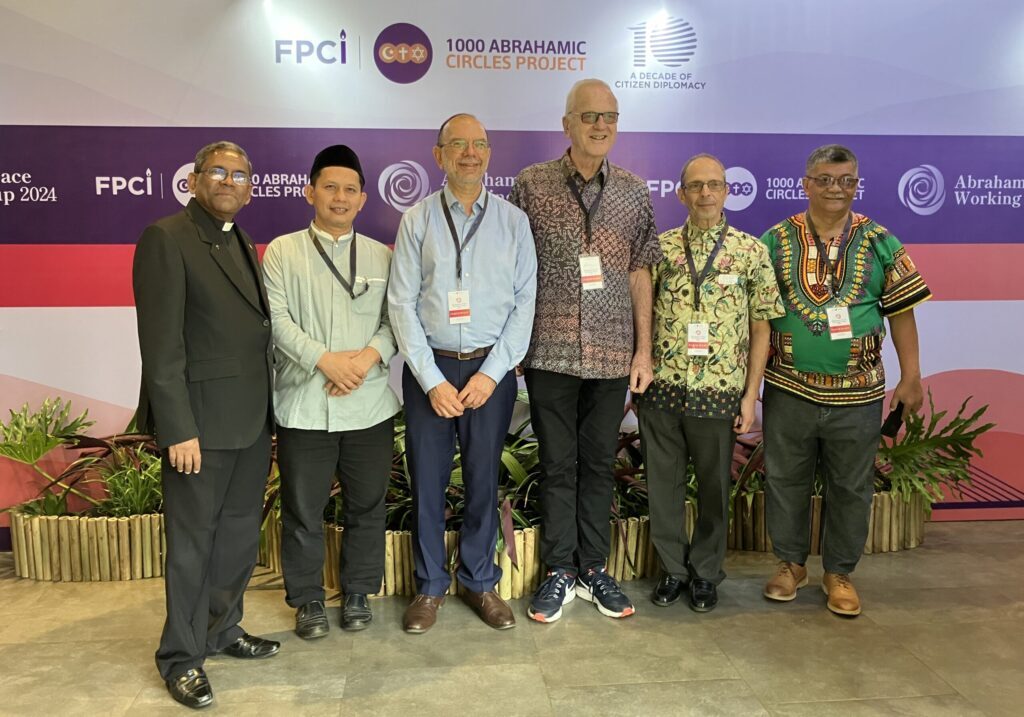Australia/Israel Review
Editorial: PM Turnbull’s mandate
Aug 3, 2016 | Colin Rubenstein
Colin Rubenstein
Following the razor-thin re-election of Prime Minister Malcolm Turnbull in a rare double dissolution election, the composition of both the House of Representatives and Senate, with new personalities pulling in new directions, is coming into focus.
While Australia’s senior leadership has not changed, the policies and priorities of the new Turnbull Government and the Parliament as a whole will certainly shape the character and fortunes of Australia as a nation in the coming years.
For that reason, it is timely to highlight some key policy areas to which Canberra should pay particular attention.
Under the backdrop of a wave of Islamist terror currently sweeping through Europe, Australia must remain proactive and keep the safety of the public paramount. The recent announcement of a government push for laws to allow for the extended detention of convicted terrorists beyond the length of their sentences if necessary for public safety is one such measure under consideration.
Prime Minister Turnbull deserves commendation for repeatedly speaking out against “Islamist terrorism” – without euphemism – reinforcing tough policies with plain speaking. At the same time, Turnbull must continue to resist the fear campaign exemplified by the views of newly-elected senator Pauline Hanson and unequivocally repudiate attempts to blame the entire Muslim community for the vile actions of Islamists.
Turnbull’s statements demonstrated that he knows that Australia’s Muslims are not communally responsible for the problem of Islamist terror, but rather must be part of our counter-terrorism strategy as crucial allies in the fight against it.
Australian society’s strength is in its multicultural diversity anchored in a commitment to shared democratic values and a culture of tolerance and mutual respect – which is why Turnbull would do well to ignore the obsessive calls from those looking to undermine or repeal Section 18C of the Racial Vilification Act, which provides an important foundation for the trust upon which this culture is built. Their core claim that this law makes it illegal to merely offend someone is simply a misrepresentation of the language and practical implementation of this crucial law.
Instead, true Australian multiculturalism – emphasising cultural diversity, these shared core values and responsibilities and obligations as well as rights – must be nurtured by the Government, not least as a key way to limit the Islamist threat in Australia.
A somewhat related matter is the need to now revisit and revise Australia’s pursuit of economic and diplomatic ties with Islamist Iran – the world’s most powerful state sponsor of terror and a nuclear threshold state. In the year that has passed since the Iranian nuclear deal, Iran has only increased its provocative behaviour – all the more reason for the Government to be more cautious and circumspect in our own dealings with Teheran, as well as in the signals it gives to Australian banks and businesses.
Since replacing Prime Minister Tony Abbott last September, Malcolm Turnbull has continued Abbott’s efforts for even closer relations with Israel – choosing Tel Aviv as the site of one of just five designated global Australian “Landing Pads” for innovation entrepreneurship.
As the expected dividends of the plan begin to blossom and Australian-Israeli innovation collaborations increase, the ball will once again return to Turnbull’s court, to seek out new ways Australia can benefit from Israeli know-how in shared spheres of interest including defence, water conservation, and alternative and green energy – continuing the path-breaking work of outgoing Innovation Minister Wyatt Roy.
Of course, support for closer Australia-Israel ties are not bound by partisan politics, and we have seen much of the ALP Opposition embrace Israeli innovation no less passionately than the governing Coalition. Opposition Leader Bill Shorten sees eye-to-eye with Turnbull on Australia-Israel cooperation, while incoming Shadow Foreign Minister Penny Wong appears poised to build upon the very positive relationship her predecessor Tanya Plibersek had with the Jewish State.
Australia benefits not only from direct cooperation with Israel but also in the ways our interests overlap indirectly. With Australia a friend and neighbour to Indonesia – home to the world’s largest Muslim population and a beacon of Islamic democracy – encouragement for Jakarta’s enhanced role in the Middle East, including potentially with Israel, will hopefully continue from Canberra. Meanwhile, Israel’s pivot to Asia under Prime Minister Binyamin Netanyahu – including the opening of new missions and trade offices throughout the region – means that Australia and Israel can both benefit through cooperating with governments and trading partners throughout Asia, unleashing unique synergies.
Back at home, the Government needs to consider upholding the taxpayer’s investment in the ABC, an important national institution which sadly often flouts the terms of its charter in terms of bias and fairness.
The most recent outrage over the broadcast of irrelevant anti-Jewish and anti-Israel tweets during ABC’s flagship political discussion forum “Q&A” is symptomatic of a deeper, long-term malaise. Be it the paucity of voices heard on the ABC from the leadership of the Australian Jewish community compared to fringe critics, advocacy journalist Sophie McNeill’s agenda-based reporting from Israel, or the airtime given to one-sided documentaries by outspoken anti-Israel political activist and ABC producer Cathy Peters – what is clear is that there needs to be more independent oversight over the ABC.
As Prime Minister Turnbull’s government prepares to turn a new page, it’s also a time to be thankful for the good fortune that Australia has for the most part enjoyed – including avoiding the recent Islamist-inspired wave of violence in Europe and the US. It has done so despite, not because of, the extremist views of people like Hanson – reflecting real concerns that must be acknowledged and addressed, but not in the discriminatory, divisive and counter-productive way the new senator from Queensland advocates.
True leadership must rise above fleeting, volatile emotions and steer the country on a sensible, principled, prudent yet effective course, and this is the challenge that greets the Parliament and Government in the current post-election period.
Tags: Australasia, Indonesia






